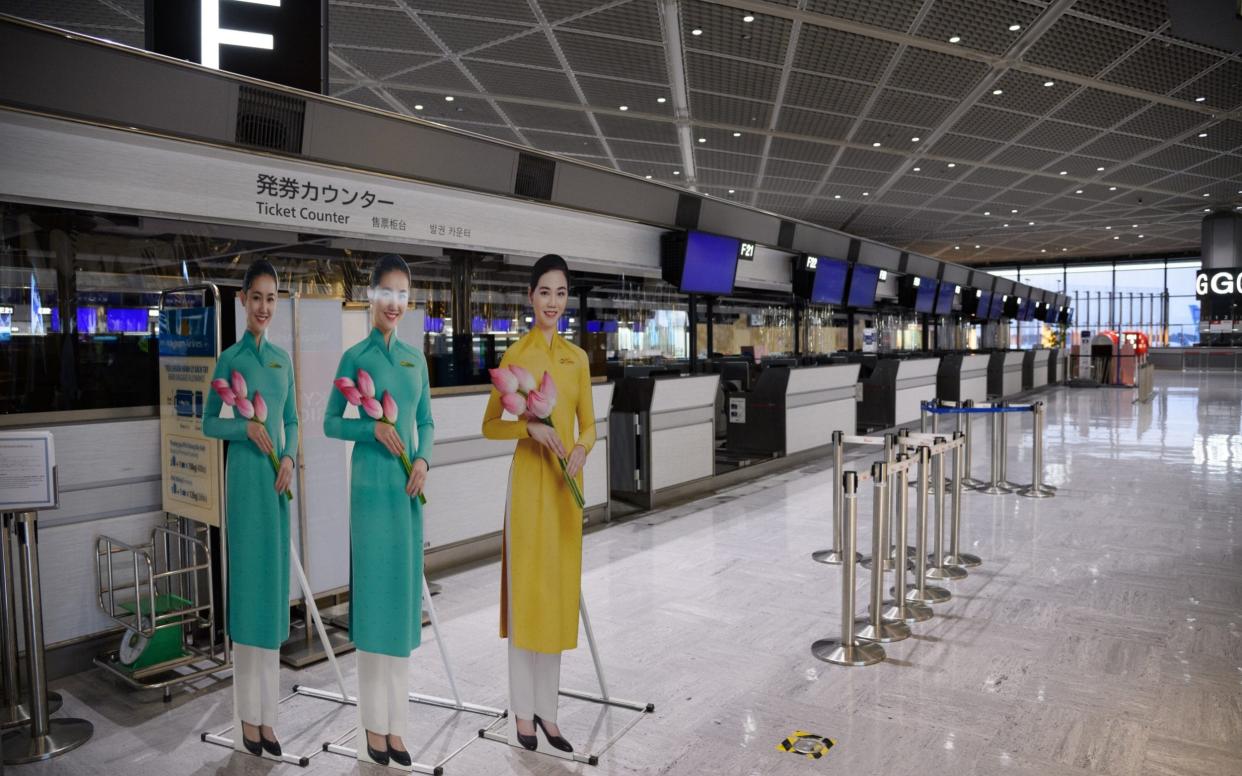Japanese suspicious of Covid vaccine despite pressing Olympics timeline

Japan is expected to launch coronavirus vaccinations as early as Wednesday amid growing concerns that high levels of public mistrust may hamper its rollout.
The Japanese government gave official approval to the Pfizer/BioNTech vaccine on Sunday, paving the way for up to 20,000 medical workers to receive the jab in a programme likely to launch this week.
Japan is one of the last major economies to launch its vaccination campaign, with its timeline under the added pressure of the Tokyo Olympics currently scheduled to launch in less than 200 days.
A major obstacle facing government officials is the fact that levels of trust in vaccines in Japan are among the lowest in the world. Around 80 per cent of the population must have immunity against the coronavirus in order for the virus to be brought under control.
However, new reports reflect Japan’s low levels of trust in vaccines, echoing the findings of a Lancet study published last year which highlighted how the nation had one of the lowest vaccine confidence rates in the world.
A new Kyodo News survey showed that 63 per cent of people in Japan are currently willing to have the vaccine, with 27 per cent – mainly women in their 40s or 50s – the most resistant. A study by broadcasters NHK last month also found that only half the nation was prepared to have the vaccination.
Japan also ranked fourth from the bottom of a separate 15-nation survey last month by research firm Ipsos, in terms of people’s willingness to be inoculated, with only 64 per cent willing to have the vaccine. An Ipsos poll in December found 77 per cent of Britons intended to take the vaccine.
Concern over possible side-effects has emerged as one of the biggest causes for mistrust in Japan, a sentiment that can perhaps be traced to a series of earlier incidents relating to the government’s stance on vaccines.
The Japanese government withdrew the combined measles, mumps and rubella vaccine in 1993 over concerns that it could cause aseptic meningitis. Meanwhile, ten years ago, two vaccines for meningitis and pneumonia were suspended following the deaths of four children.
In 2013, the health ministry also stopped promoting the human papillomavirus (HPV) vaccine, citing a limited number of adverse reactions, including long-term pain.
Experts have urged Japanese people to consider vaccinations. Kazuyo Yamanouchi, virology expert and professor emeritus at the University of Tokyo’s Institute of Science, highlighted how the high speed of the vaccine’s development reflected scientific progress made in recent decades.
While he admitted that no vaccine was entirely risk-free, he emphasised how the social benefits of vaccinating the population in Japan outweighed the risk of possible side-effects.
“The only thing that truly works for a virus pandemic is prevention by vaccination,” he told Kyodo News agency.
The Japanese government is taking steps to prevent public mistrust of vaccines limiting the coronavirus innoculation rollout, with measures such as the launch of a new call centre providing vaccination consultations.
In typically Japanese style, officials have also unveiled a cartoon dog chatbot called Corowa-kun (a mix of the words “coronavirus” and “vaccine”), who answers vaccinations queries in a white doctor’s coat, in a bid to win over the public.

